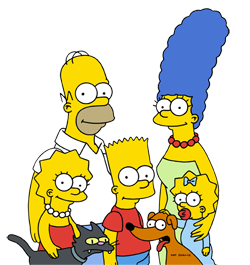Joel and Ethan Coen were the big winners at the Academy Awards presentation Sunday night, when their film "No Country for Old Men" won a total of four Oscars, and all of them big ones: best picture, best director, best adapted screenplay and best supporting actor.
Though the best picture win was expected, the across-the-board scale of their triumph was something of a surprise, in an eclectic year in which several films had passionate advocates. Their victory dwarfed their previous Academy Awards success with "Fargo," which won two Oscars (actress and original screenplay) at the ceremony in 1997.
French actress Marion Cotillard won for her brilliant portrayal of singer Edith Piaf in "La Vie en Rose," and Daniel Day-Lewis took best actor honors, for his histrionic performance as an oil baron at the turn of the past century in "There Will Be Blood." Cotillard, clearly surprised, was over the moon, while front-runner Day-Lewis gave a gracious acceptance speech, in which he paid tribute to his wife, screenwriter Rebecca Miller, and director Paul Thomas Anderson.
Aside from Lewis, it was not a particularly good night for "There Will Be Blood," which won only one other award, for best cinematography.
Sunday night saw a leaner, meaner Oscar presentation, which clocked in under the usual four hours and had fewer unnecessary tributes, interpretive dances and filler. Perhaps the writers strike, recently ended, had a salutary effect. Jon Stewart handled the master of ceremony duties with more aplomb than last time. He concentrated on jokes about movies, with just a few political zingers tossed in: "Oscar is 80 this year, which makes him now automatically the front-runner for the Republican nomination." But his best move was to bring back one of the best song winners to finish her acceptance speech. She was clearly moved, and it made for a lovely moment.
In a smart touch, the Oscar telecast also spread out some of the major categories, with the best actress prize being given early in the proceedings. It's a good idea, and the practice should be repeated in the future.
As always in live television, but especially with the Academy Awards, there was the occasional odd interlude. Katherine Heigl, looking perfectly gorgeous in a classic Hollywood way, walked out onstage with an attack of nerves that made her voice shake. She apologized for her state and quickly recovered. Steve Carell, in presenting an award, dropped the s-bomb early in the night and came close to doing it a second time. And what can we make of the fact that "The Bourne Ultimatum" won three Oscars, including one for best editing - presumably for its ability to make vertigo sufferers throw up watching it? Very interesting.
The night started with business as usual, with "Ratatouille" winning best animated film and with the expected winner in the supporting actor category taking home the Oscar - Spanish actor Javier Bardem, who played the crazed killing machine in "No Country for Old Men." Looking a lot saner and sporting a more flattering haircut than he did in the film, Bardem accepted the award by thanking his colleagues and then, switching into Spanish, he addressed his mother.
Then came the night's first shock: Tilda Swinton's victory in the best supporting actress category, for playing the unbalanced corporate lawyer in "Michael Clayton." She was extraordinary in the film, no doubt about it, but in the weeks leading up to Sunday night, every expert said she didn't stand a chance. Swinton prevailed in a strong category that included great performances by Ruby Dee ("American Gangster"), Amy Ryan ("Gone Baby Gone") and Saoirse Ronan ("Atonement"), not to mention Cate Blanchett's amusing party trick as one of the Bob Dylans in "I'm Not There." Supposedly Blanchett had the inside track, but it was Swinton's name that was called. She looked suitably shocked.
For a while, the shocks kept coming. Marion Cotillard had a surprise win over Julie Christie in the best actress category. Academy voters favored Cotillard's turn as Edith Piaf (in "La Vie en Rose") over Christie's turn as a dementia victim in "Away From Her," making Cotillard the second woman in Oscar history to win best actress for a foreign-language film.
It pays to remember, however, that the one other time this happened, in 1962, the award went to Sophia Loren ("Two Women"), who had already made a tremendous name for herself as an American film star. So Cotillard's achievement really is something for the books.
In another surprise, "Taxi to the Dark Side," an expose of illegal and unlawful apprehension and interrogation techniques being practiced by the U.S. government, upset "No End in Sight," which everyone expected to win in the documentary category.
In this year's bizarre category of foreign film, in which few outside the academy had seen more than one or two of the nominated pictures, the Austrian entry, "The Counterfeiters," took home the prize. Only time will tell if it's any better than "The Orphanage" (Spain) or "4 Months, 3 Weeks and 2 Days" (Romania), which were unaccountably not even nominated.
Then the surprises stopped coming, but that was OK, because the right people won. Best original screenplay went to Diablo Cody for "Juno," the story of a pregnant 16-year-old girl; and best adapted screenplay went to the Coen brothers for "No Country for Old Men," from Cormac McCarthy's novel of the same name. The victories of the Coens in the director and picture category were deserving.
In the end, though, it's Cotillard's victory that leaps out as the night's biggest and most pleasant surprise. She campaigned hard, and the campaign may have been particularly important in her case, because the more people saw Cotillard in her true incarnation, as a radiant 32-year-old woman, the more they could appreciate her transformation as the bitter, middle-aged drunk of Piaf's later years. But there was yet another reason behind her triumph, as well: She really did give the best performance of the actresses in her category.
Every so often the right person and the right movie win. That happened a lot more this year than most.
E-mail Mick LaSalle at mlasalle@sfchronicle.com.
Though the best picture win was expected, the across-the-board scale of their triumph was something of a surprise, in an eclectic year in which several films had passionate advocates. Their victory dwarfed their previous Academy Awards success with "Fargo," which won two Oscars (actress and original screenplay) at the ceremony in 1997.
French actress Marion Cotillard won for her brilliant portrayal of singer Edith Piaf in "La Vie en Rose," and Daniel Day-Lewis took best actor honors, for his histrionic performance as an oil baron at the turn of the past century in "There Will Be Blood." Cotillard, clearly surprised, was over the moon, while front-runner Day-Lewis gave a gracious acceptance speech, in which he paid tribute to his wife, screenwriter Rebecca Miller, and director Paul Thomas Anderson.
Aside from Lewis, it was not a particularly good night for "There Will Be Blood," which won only one other award, for best cinematography.
Sunday night saw a leaner, meaner Oscar presentation, which clocked in under the usual four hours and had fewer unnecessary tributes, interpretive dances and filler. Perhaps the writers strike, recently ended, had a salutary effect. Jon Stewart handled the master of ceremony duties with more aplomb than last time. He concentrated on jokes about movies, with just a few political zingers tossed in: "Oscar is 80 this year, which makes him now automatically the front-runner for the Republican nomination." But his best move was to bring back one of the best song winners to finish her acceptance speech. She was clearly moved, and it made for a lovely moment.
In a smart touch, the Oscar telecast also spread out some of the major categories, with the best actress prize being given early in the proceedings. It's a good idea, and the practice should be repeated in the future.
As always in live television, but especially with the Academy Awards, there was the occasional odd interlude. Katherine Heigl, looking perfectly gorgeous in a classic Hollywood way, walked out onstage with an attack of nerves that made her voice shake. She apologized for her state and quickly recovered. Steve Carell, in presenting an award, dropped the s-bomb early in the night and came close to doing it a second time. And what can we make of the fact that "The Bourne Ultimatum" won three Oscars, including one for best editing - presumably for its ability to make vertigo sufferers throw up watching it? Very interesting.
The night started with business as usual, with "Ratatouille" winning best animated film and with the expected winner in the supporting actor category taking home the Oscar - Spanish actor Javier Bardem, who played the crazed killing machine in "No Country for Old Men." Looking a lot saner and sporting a more flattering haircut than he did in the film, Bardem accepted the award by thanking his colleagues and then, switching into Spanish, he addressed his mother.
Then came the night's first shock: Tilda Swinton's victory in the best supporting actress category, for playing the unbalanced corporate lawyer in "Michael Clayton." She was extraordinary in the film, no doubt about it, but in the weeks leading up to Sunday night, every expert said she didn't stand a chance. Swinton prevailed in a strong category that included great performances by Ruby Dee ("American Gangster"), Amy Ryan ("Gone Baby Gone") and Saoirse Ronan ("Atonement"), not to mention Cate Blanchett's amusing party trick as one of the Bob Dylans in "I'm Not There." Supposedly Blanchett had the inside track, but it was Swinton's name that was called. She looked suitably shocked.
For a while, the shocks kept coming. Marion Cotillard had a surprise win over Julie Christie in the best actress category. Academy voters favored Cotillard's turn as Edith Piaf (in "La Vie en Rose") over Christie's turn as a dementia victim in "Away From Her," making Cotillard the second woman in Oscar history to win best actress for a foreign-language film.
It pays to remember, however, that the one other time this happened, in 1962, the award went to Sophia Loren ("Two Women"), who had already made a tremendous name for herself as an American film star. So Cotillard's achievement really is something for the books.
In another surprise, "Taxi to the Dark Side," an expose of illegal and unlawful apprehension and interrogation techniques being practiced by the U.S. government, upset "No End in Sight," which everyone expected to win in the documentary category.
In this year's bizarre category of foreign film, in which few outside the academy had seen more than one or two of the nominated pictures, the Austrian entry, "The Counterfeiters," took home the prize. Only time will tell if it's any better than "The Orphanage" (Spain) or "4 Months, 3 Weeks and 2 Days" (Romania), which were unaccountably not even nominated.
Then the surprises stopped coming, but that was OK, because the right people won. Best original screenplay went to Diablo Cody for "Juno," the story of a pregnant 16-year-old girl; and best adapted screenplay went to the Coen brothers for "No Country for Old Men," from Cormac McCarthy's novel of the same name. The victories of the Coens in the director and picture category were deserving.
In the end, though, it's Cotillard's victory that leaps out as the night's biggest and most pleasant surprise. She campaigned hard, and the campaign may have been particularly important in her case, because the more people saw Cotillard in her true incarnation, as a radiant 32-year-old woman, the more they could appreciate her transformation as the bitter, middle-aged drunk of Piaf's later years. But there was yet another reason behind her triumph, as well: She really did give the best performance of the actresses in her category.
Every so often the right person and the right movie win. That happened a lot more this year than most.
E-mail Mick LaSalle at mlasalle@sfchronicle.com.






























No comments:
Post a Comment